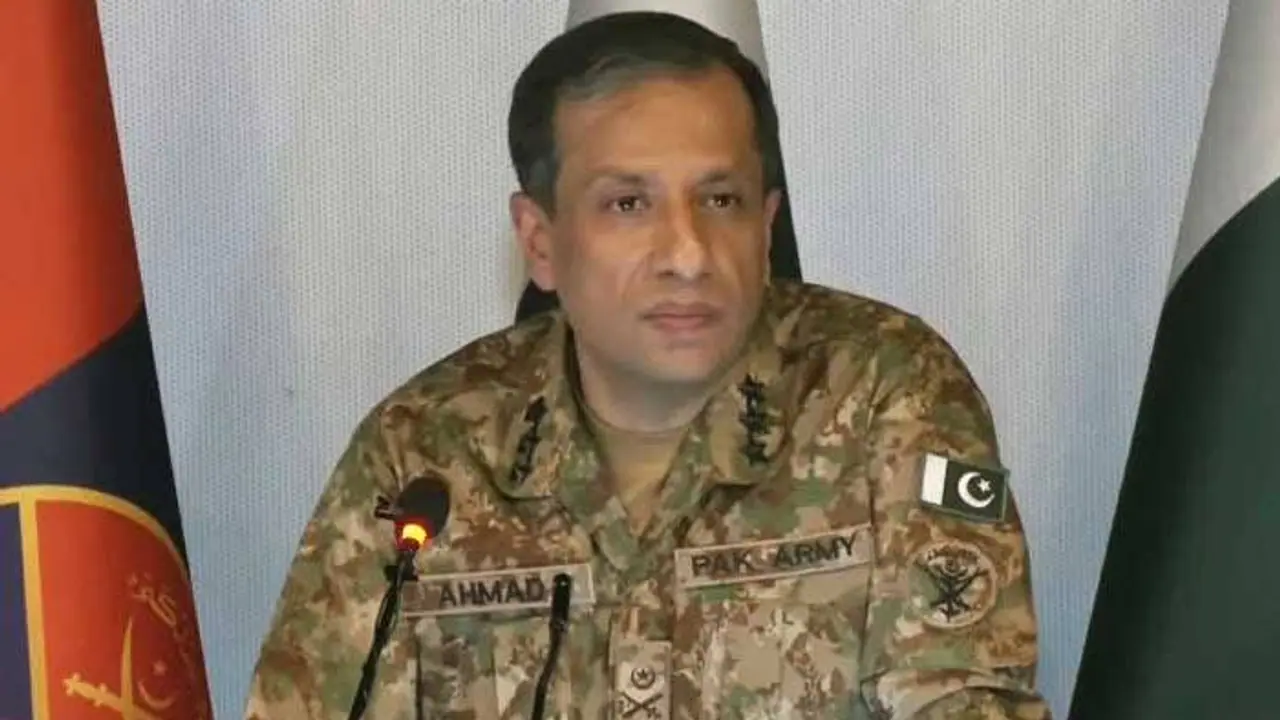Pakistan's peace rhetoric after Indian airstrikes under Operation Sindoor is seen as a face-saving attempt following military embarrassment.
In a clear attempt to control damage and reframe the narrative following India's precise and punishing airstrikes under Operation Sindoor, Pakistan’s military has claimed its people are “celebrating peace, not victory.” The statement, made by Inter-Services Public Relations (ISPR) Director General Lt Gen Ahmed Sharif Chaudhry, comes just days after India targeted multiple terror hubs across Pakistan and Pakistan-occupied Kashmir in response to the April 22 Pahalgam terror attack that left 26 innocent civilians dead.

In an interview with China’s state-run CGTV — a platform that reflects Beijing’s pro-Islamabad tilt — the Pakistani army spokesperson attempted to mask the country’s military embarrassment by saying, “We, too, want to move toward development and stability. We owe it to the people of Pakistan, to our future generations. That is why our preference is always peace.”
However, observers believe this sudden emphasis on “peace” is a carefully choreographed face-saving move by the Pakistani establishment, reeling from India’s assertive military response.
India struck 11 high-value military installations on May 10 after Pakistan tried to retaliate against Indian military bases — a counter-response that was swiftly and decisively shut down.
Despite the military setback, Lt Gen Chaudhry continued the rhetoric: “Pakistanis are celebrating peace, not victory. There is humility in our people. We are down to earth and thankful to Allah.” His statement, however, betrays the reality that it was Pakistan that pleaded for de-escalation after suffering heavy damage during the strikes.
Pakistan Preaches Peace While Spreading Misinformation
In his interview Lt Gen Chaudhry criticised the ongoing "aggression and baseless accusations" directed at Pakistan, emphasizing that responsible nations should prioritize tackling global issues like climate change, misinformation, and overpopulation, instead of seeking dominance through unfounded hostility.
What's ironic, however, is that the ISPR was instrumental in disseminating false narratives through an extensive network of fake social media accounts. Reports suggest that ISPR manages around 20,000 fake accounts aimed at spreading misinformation and influencing public perception. These accounts frequently pose as members of different ethnic and religious groups to create division within India and among its allies.
Following Operation Sindoor, Pakistan's state machinery circulated a series of fabricated claims intended to mislead both domestic and international audiences. India’s Press Information Bureau Fact Check unit debunked several of these, including false reports of attacks on Indian military installations and doctored visuals of Indian casualties.
Notably, Pakistani state media aired footage falsely claiming that Indian aircraft had been shot down—claims that were later disproven. Such narratives were crafted to reassure the domestic audience that Pakistan had successfully retaliated, despite the loss of 11 airbases and nine terror camps during the operation.
Rather than introspect on the role of terror infrastructure festering on its soil and the constant misinformation machinery breeding within its own network, the Pakistani general chose to deflect attention by sermonising on “mature nations” focusing on issues like climate change and overpopulation.
“We have never bowed before, and we never will,” he claimed, despite the fact that it was a desperate Pakistan DGMO (Director General of Military Operations) who called up his Indian counterpart Lt Gen Rajiv Ghai at 3.35 pm on May 10 that eventually led to a halt in military action.
China Angle: Partnership Praised Amid Internal Attacks
On China, Pakistan’s all-weather ally, Chaudhry praised the relationship as one built on a “shared commitment to peace, stability, and economic development.” This comes as attacks on Chinese engineers and infrastructure projects in Pakistan continue unabated, highlighting the country’s internal security collapse.
Still, Lt Gen Chaudhry insisted that Pakistan’s “national power” is like an “iron wall” comprising “the people, armed forces, diplomatic corps, media, and youth, all united against terrorism.”
Yet, there is a conspicuous silence when it comes to answering how globally designated terrorists like Yusuf Azhar, Abdul Malik Rauf, and Mudasir Ahmed—key figures in the IC-814 hijacking and the Pulwama suicide attack that killed 40 CRPF personnel—were granted safe haven on Pakistani soil.
In fact, Pakistan attempted to portray internationally designated terrorist Hafiz Abdur Rauf as a harmless preacher. However, in doing so, the DG ISPR himself inadvertently revealed his national ID on screen—an ID that exactly matched the details listed in the US Treasury Department's designation of him as a global terrorist.
With India now setting the terms of engagement in the region, Pakistan’s hollow proclamations of peace only underline its inability to defend or deflect — let alone retaliate — against India’s assertive military posture. The message from New Delhi is clear: Terror will be met with force, and denial will not alter facts on the ground.


